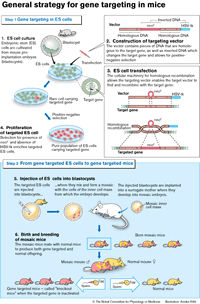MWG-Biotech enters cancer research cooperation with scientists from the University of Würzburg
Advertisement
MWG-Biotech has announced the formation of a consortium with a team of scientists at the University of Würzburg led by Prof. Sebastian Suerbaum, Prof. James G. Fox of the MIT of Cambridge, MA, and GeneData, Basel, to perform a whole genome analysis of Helicobacter hepaticus, using MWG-Biotech’s and GeneData’s proprietary sequencing and annotation technology. The main goal of this project is to get a comprehensive overview over the genetic organisation of H. hepaticus as well as the Expression of genes involved in pathogenicity. The scientific results will be published jointly and the research data will be made available on MWG’s website.
Helicobacter hepaticus, a member of the Enterohepatic Helicobacter Species (EHS) causes chronic active hepatitis, liver cancer and inflammatory bowel disease (IBD) in mice. Research evidence has linked EHS to human diseases, such as chronic cholecystitis and liver cancer. Helicobacter hepaticus is a close relative of the human gastric pathogen Helicobacter pylori, which is held responsible for causing stomach cancer. A comparative analysis of the genome sequences of H. hepaticus and H. pylori is expected to provide valuable insight into the pathogenic (disease-causing) mechanisms of bacteria to promote chronic infection, inflammation and malignant diseases like cancer.
„This cooperation makes full use of our knowhow and our synergistic competence profile that enables us to offer every service on the road from genome to gene function“ says Michael Weichselgartner, CEO of MWG-Biotech. „We are especially proud that scientists of high renown like Prof. Suerbaum and Prof. Fox have chosen MWG as a partner in their research work, and it is a pleasure for us to have GeneData, one of the leaders in functional genomics with a proven record in anti-bacterial target identification, as part of the team. We expect valuable insight for cancer research and the pharmaceutical industry to come from this project.“
The production of the shotgun libraries and sequencing will take place at MWG. Annotation will be performed by MWG with their proprietary bioinformatics platform BioGist™. Functional annotation and comparative genome characterization will be carried out using the GeneData Phylosopher™ software system, and will also include a full genome comparison of H. hepaticus and H. pylori. The annotation will be completed and analyzed for clues to carcinogenic mechanisms by Prof. Suerbaum of the University of Würzburg and Prof. Fox of the M.I.T.. Subsequent experiments in their laboratories will be performed to validate the conclusions raised from the sequence data.
„This collaboration with two of the leading scientists in the Helicobacter field and with MWG-Biotech’s rapid sequencing facility, shows the applicability of GeneData Phylosopher™ to cancer related questions“ states Othmar Pfannes, GeneData’s CEO. „Our state-of-the-art genome analysis system is successfully used by pharmaceutical companies to develop new antibiotics. Now we show GeneData Phylosopher™‘s capabilities in another area of important research.“
From the research results MWG will design and produce a Helicobacter hepaticus microarray for the identification of target genes for diagnostic and therapeutic purposes. Both Prof. Suerbaum and Prof. Fox, together with their teams at the Institute of Hygiene and Microbiology in Würzburg and the Division of Comparative Medicine at the Massachusetts Institute of Technology in Cambridge, MA, USA, have performed acclaimed and highly-cited research work on the pathogenesis of Helicobacter pylori and related bacteria for more than ten years. Prof. Fox and Prof. Suerbaum have performed successful collaborative research projects together for many years. "Helicobacter hepaticus is the paradigm organism for the enterohepatic Helicobacter species, which have pathogenic potential in humans and animals", says Prof. Fox. "MWG Biotech and GeneData's expertise in genomic-scale sequencing, sequen

































































